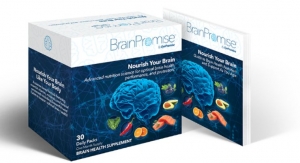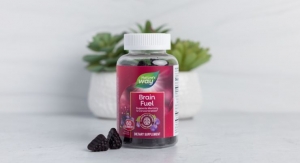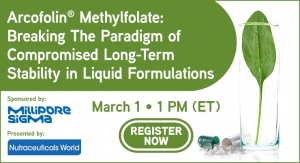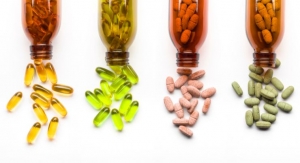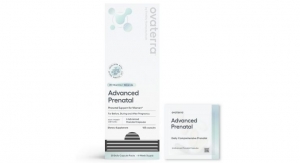02.24.17
B vitamins and complexes are popular supplements, but labels can be misleading, according to a new report from ConsumerLab.com, White Plains, NY, which tested, reviewed, and compared 49 supplements from the U.S. and Canada containing B complexes, B6, B12, biotin, folate, niacin, thiamin, and/or riboflavin. B vitamin supplements are of benefit to people not able to get enough of these essential nutrients from their diets, such as many older people, those taking medicine to lower stomach acid, pregnant women and individuals with certain genetic mutations.
Three supplements were found to contain much greater amounts of B vitamins than listed. For example, a popular B-complex listing 100% of the Daily Value (i.e., daily requirement) of folate (vitamin B9), actually provided nearly 400% of the Daily Value and 50% more than the safe limit for adults, above which there is an increased risk of toxicity. The discrepancy between label information and reality was due to finding it to contain 232% of its listed amount of folic acid and the fact that folic acid is absorbed 70% better than folate from food, as recognized by the FDA last year. Supplement labels do not have to reflect this higher absorption until mid-2018 (or later for supplements from small companies). Until then, for example, a supplement listing 589 mcg of folic acid and 147% of the Daily Value of folate actually provides the equivalent of 1,001 mcg of folate, 250% of the Daily Value, and is over the daily safe limit for folate, Consumerlab.com said.
As noted in the new report, the FDA also recognized last year that the Daily Values assigned to most of the B vitamins had been too high. It has reduced these Daily Values but labels need not reflect the new values until at least next year. In the meantime, ConsumerLab.com’s President Tod Cooperman, MD, advised consumers to be aware that “Nearly all B vitamins currently have misleading information with respect to the percentage of the Daily Values they provide. You are often getting more than you think, need, or should want.”
In addition to showing which products did or did not contain what they claimed, ConsumerLab.com’s new report also showed the percentage of the new Daily Values provided by each product. CL’s Top Picks for best value among the supplements are also shown.
Three supplements were found to contain much greater amounts of B vitamins than listed. For example, a popular B-complex listing 100% of the Daily Value (i.e., daily requirement) of folate (vitamin B9), actually provided nearly 400% of the Daily Value and 50% more than the safe limit for adults, above which there is an increased risk of toxicity. The discrepancy between label information and reality was due to finding it to contain 232% of its listed amount of folic acid and the fact that folic acid is absorbed 70% better than folate from food, as recognized by the FDA last year. Supplement labels do not have to reflect this higher absorption until mid-2018 (or later for supplements from small companies). Until then, for example, a supplement listing 589 mcg of folic acid and 147% of the Daily Value of folate actually provides the equivalent of 1,001 mcg of folate, 250% of the Daily Value, and is over the daily safe limit for folate, Consumerlab.com said.
As noted in the new report, the FDA also recognized last year that the Daily Values assigned to most of the B vitamins had been too high. It has reduced these Daily Values but labels need not reflect the new values until at least next year. In the meantime, ConsumerLab.com’s President Tod Cooperman, MD, advised consumers to be aware that “Nearly all B vitamins currently have misleading information with respect to the percentage of the Daily Values they provide. You are often getting more than you think, need, or should want.”
In addition to showing which products did or did not contain what they claimed, ConsumerLab.com’s new report also showed the percentage of the new Daily Values provided by each product. CL’s Top Picks for best value among the supplements are also shown.




